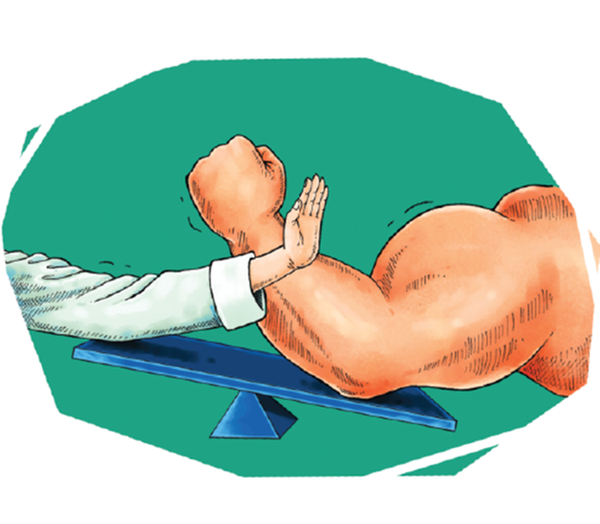Exponents, not kung fu, to blame for blow

 |
| ZHAI HAIJUN/CHINA DAILY |
From 1899 to 1911, the Boxer fighters, convinced of being invulnerable to foreign weapons including guns, fell to the bullets of Western colonial armies and failed in their self-avowed mission to defend the Qing Dynasty (1644-1911) against the foreign invaders. But the defeat of the Boxer fighters was dwarfed by the 4,000-year history of Chinese martial arts.
For long the entertainment industry has been spicing up the martial arts tales passed down the generations, adding to the myth that kung fu masters are invincible. As a result, many Chinese who believe kung fu to be the best martial arts in the world have ridiculed Xu as a "cocky and ignorant clown".
Face saving is a tradition in kung fu circles, even though it may not be part of Chinese martial arts per se. That is why if a kung fu master loses even once to an opponent who practices another form of marital arts, many see it as a defeat for the entire kung fu fraternity.
Wei's defeat does not signify that kung fu is inferior to modern fighting skills. But, as many experts say, the standard of martial arts has declined dramatically since the end of the Qing Dynasty.
Today, kung fu is just a form of physical exercise and its utility seems restricted to stage performances, even though many kung fu masters do not think so.
In fact, some kung fu maters have challenged Xu to fight them so that they can avenge not only Wei but also the entire kung fu fraternity. Xu, however, has refused to accept the challenge, asserting he would rather fight "fake kung fu masters".
But more urgent than defeating Xu, which I believe will happen once a real kung fu master turns up, is to dwell upon the problems afflicting Chinese martial arts. Most kung fu masters treat only the classical martial arts texts as their bible, and refrain from learning from foreign combat disciplines such as boxing or Thai boxing. They still follow ancient techniques to improve their skills, as they don't believe modern technology and training methods can help them.
What they seem to forget is kung fu developed because masters, modest and open, paid close attention to not only the styles and techniques of foreign martial arts combatants such as Mongolian wrestlers, but also the attacking skills of some animals and insects.
In contrast, today's kung fu fraternity seems content with the rich heritage, rather than being interested in learning new skills and improving upon the existing styles.
Also, unlike competitive sports, which attract a lot of fans, participants and investments, kung fu is either exploited by the entertainment industry or practiced as a hobby by a small group of people. Perhaps the inherent inability of kung fu to be subjected to rigid rules, which can oversimplify its diversified and complicated form and execution, can be blamed for its failure to develop into a modern competitive sport.
Many forms of martial arts, inseparable as they are from the use of lethal skills, have been gradually lost to posterity. Tai chi, for example, used to have more than 100 sets of movements, most of which could be fatally aggressive. But the tai chi Wei practices has only 20-odd movements, most of them defensive in nature, and is used mostly by senior citizens to keep physically fit.
In other words, the loss of attacking movements and the lack of real fighting experience among kung fu combatants and the sharp drop in the number of practitioners are responsible for not only the defeat of Wei but also the sorry state that martial arts are in today.
The writer is a writer at China Daily. [email protected]

































